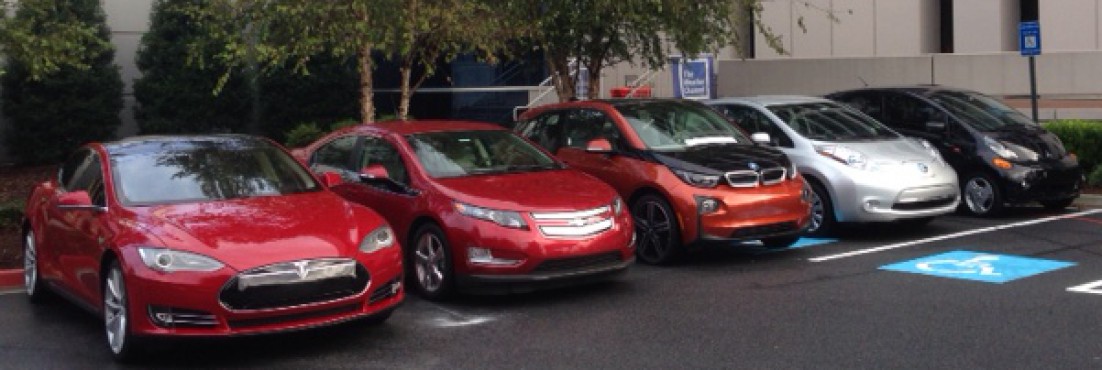Thanks to CleanCitiesGeorgia, and specifically to its Executive Director, Don Francis, we have our first look at EV vehicle registrations (the best measure for sales since these vehicles are actually registered for use in Georgia) in the 60 days following the repeal of the $5,000 Zero Emission Vehicle (ZEV) tax credit on June 30, 2015.
No surprise, registrations have been cut in half, off by -49% to an average of 462 vehicles in July-August versus a January-June average of 915 EVs. When you look at the data broken out by Battery Electric Vehicles (ZEV tax credit eligable) and Plug-in Hybrid Electrics (ZEV/LEV tax credit ineligable) the PHEV’s are off -24% (31/month July-August vs. 41 January-June) while the BEV registrations have fallen by -46% to 431 units vs. 874 January-June.
Some of this is certainly explained by the pre-Tax Credit repeal ‘Gold Rush” sales in April-June which produced sales of 3,469 EVs. And with the tax credit repealed, EV automaker sales, led by Nissan LEAF (-55%) and BMW i3 (-52%) dropped like a rock. Tesla fared slightly better experiencing only a -19% drop in monthly average sales of the 3 year old Model S (57 vs. 70 units).
So is there any good news? YES! Georgia has added another 6,413 EV’s in 2015 bringing cumulative new EV registrations to 22,795 vehicles over the five year period (not accounting for trade ins, lease returns, accidents) or almost a 40% increase in the number of EV’s registered in the State of Georgia.

What can we expect going forward: further fall off in EV registrations in Georgia until the following happens:
1). Lower cost EV’s are introduced – $30-35,000 price with ranges well in excess of 100 miles. Automotive OEM plans call for vehicles like the Chevrolet BOLT, Tesla Model III, and the next generation Nissan LEAF to meet these metrics.
2). Growing numbers of used EVs come back into Georgia. Almost daily I hear of some one who got ‘the deal of a lifetime’ on a 2 or 3 year old Nissan LEAF, Chevrolet VOLT and yes even a Tesla Model S which only adds to the EV fleet on Georgia’s roads. For 2nd owners, used EVs can be a tremendous value, with plenty of warranty left on the car and the battery and generally pretty low mileage and pricing which reflects the Federal rebates they received when new.
3). New Incentives are introduced in Georgia taking the form of a tax credit, point of sale rebate (as Connecticut, Tennessee and Massachusetts are doing) or some other form of incentive. Fortunately, the Federal Tax Credit for EV’s still has a long life ahead since it is based on the number of qualifying EVs produced by the automotive OEMs (200,000 per name plate then phasing down thereafter).
4). The EV Road Tax is reduced or repealed. The current $200.00 EV road tax as has been discussed on this blog before, is unfair and unjust. It will likely be the subject of legislative proposals in the 2nd year of this Georgia General Assembly session or into the next.
As more data becomes available, look for updates to this blog post.









You must be logged in to post a comment.